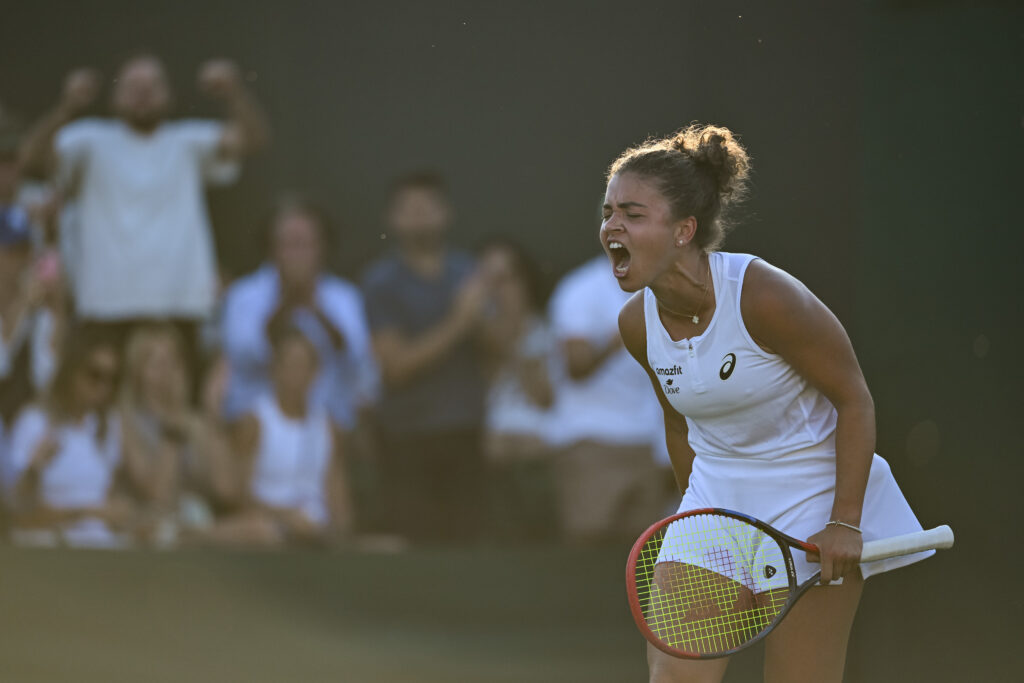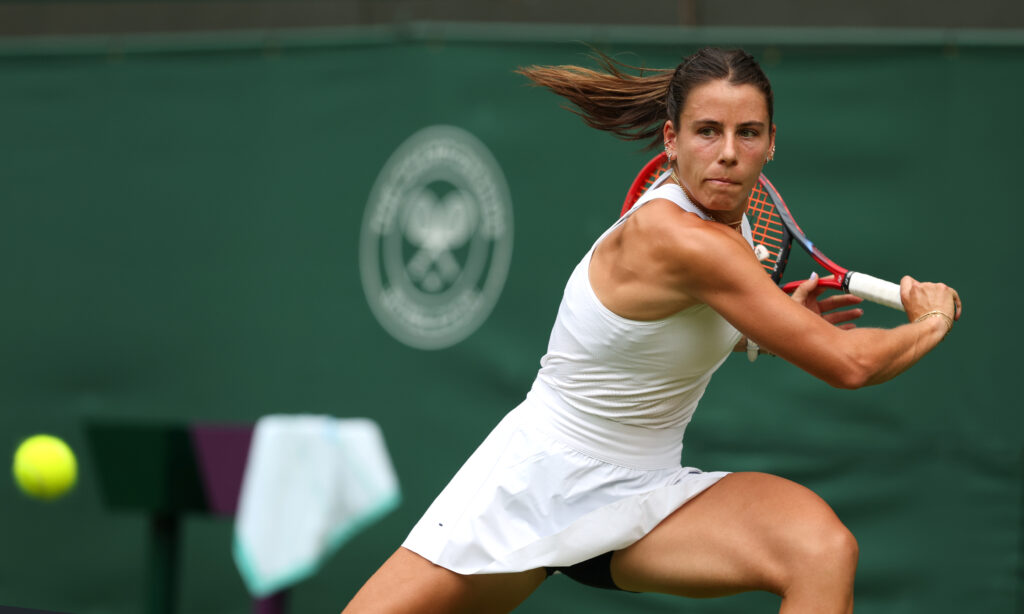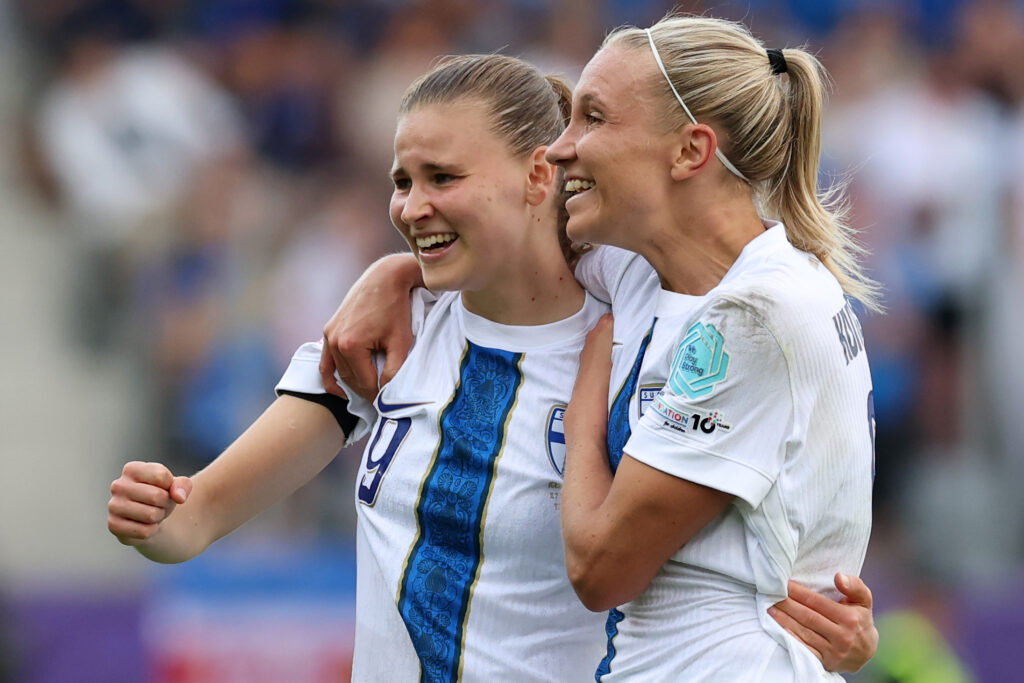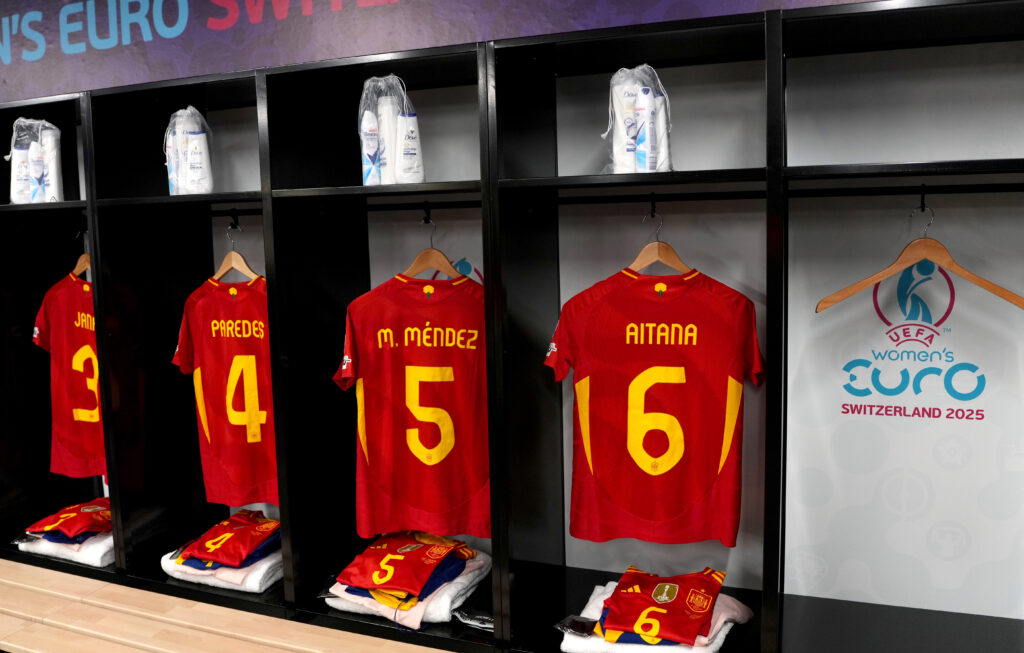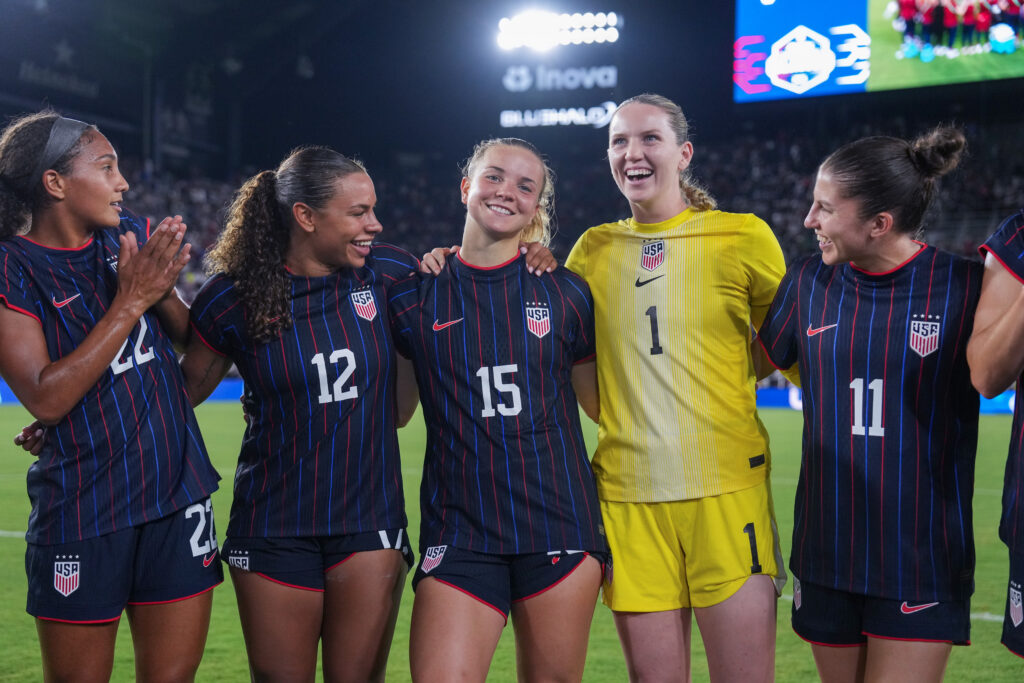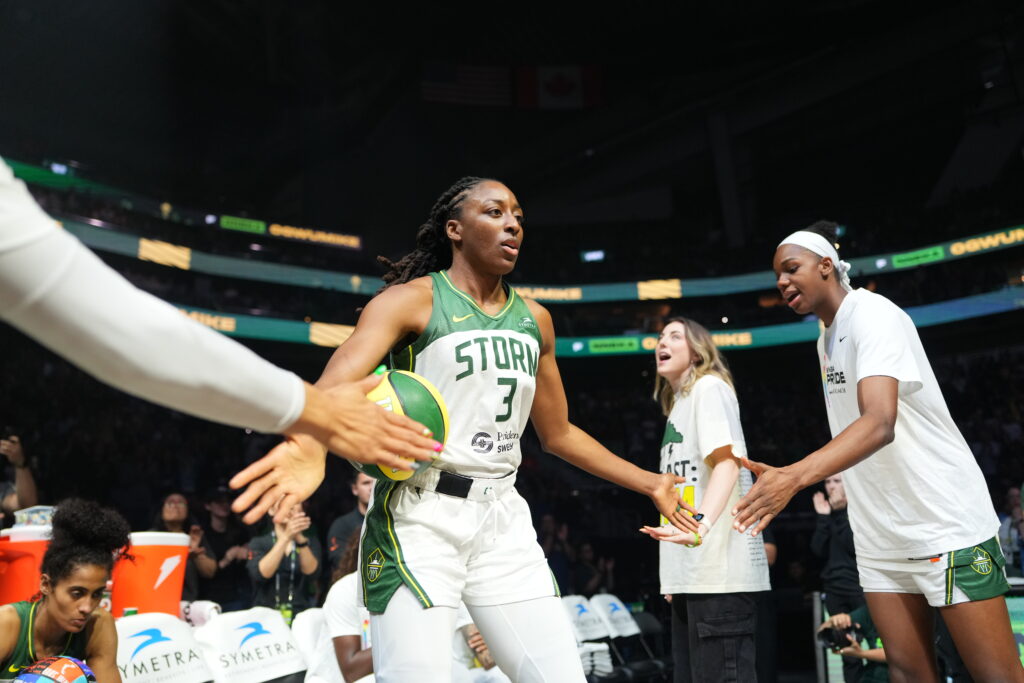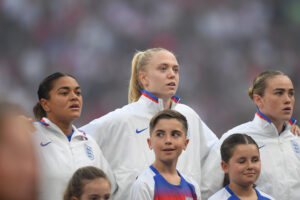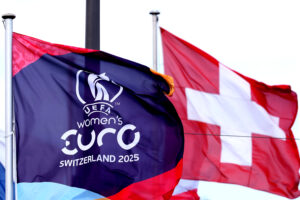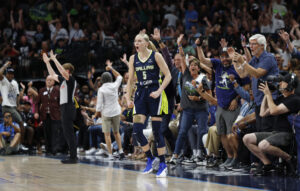If there is one person that Naomi Girma leaned on the most at the 2023 World Cup, it was Kelley O’Hara.
A veteran defender with over a decade of experience and 160 international appearances under her belt, O’Hara has long been a leader for the U.S. women’s national team. But for Girma, who has just 20 caps under her belt, O’Hara was particularly instrumental in ensuring that she remained on top of her game in Australia and New Zealand.
“In the locker room, I wore No. 4 so I was next to Kelley [O’Hara], No. 5,” Girma said of how the mentorship came to be on the latest episode of Just Women’s Sports‘ “Snacks” podcast. “And I felt like I could lean on her a lot, and she was really good at boosting me up if I needed it or being like, ‘Hey, we got this, keep going,’ or like, ‘Hey, look for this ball. This is on.’”
Girma also said that O’Hara was helpful in making sure that players were pressing the reset button after each match, even if that match hadn’t gone according to plan. While they would go on to have a disappointing finish in the Round of 16, the team’s earliest-ever exit at a World Cup, O’Hara helped Girma to realize that the World Cup mindset was different from normal USWNT business.
With the World Cup serving as Girma’s first major tournament, she learned a lot about how “every game, every point is so important” but also being able to set the reset button was key, she said.
“Once you do move on or make it to the next phase like you really do have to forget about the game before so quickly, like, get your takeaways and what you can improve on as a team as an individual,” Girma said. “But then it’s really like, look to the next game, you have like four or five days to prepare.”
The team did well in looking ahead to Sweden despite the disappointing result, according to Girma. Team veterans were key in helping to implement that.
“[O’Hara was] also one of those players who was just kind of driving that like, ‘It’s a tournament, we’re through, focus on the next game,’” Girma said. “Like, that mindset I think is so different from a regular camp. … In a tournament it’s new team [every game]. You can’t really worry about how you could have broken [the previous opponent] down. It’s like how do you now beat this new team?
“So going into tournaments moving forward, I think that would be a big takeaway for me. And I think for a lot of us who experienced our first World Cup something that we can look to use going into the Olympics.”

